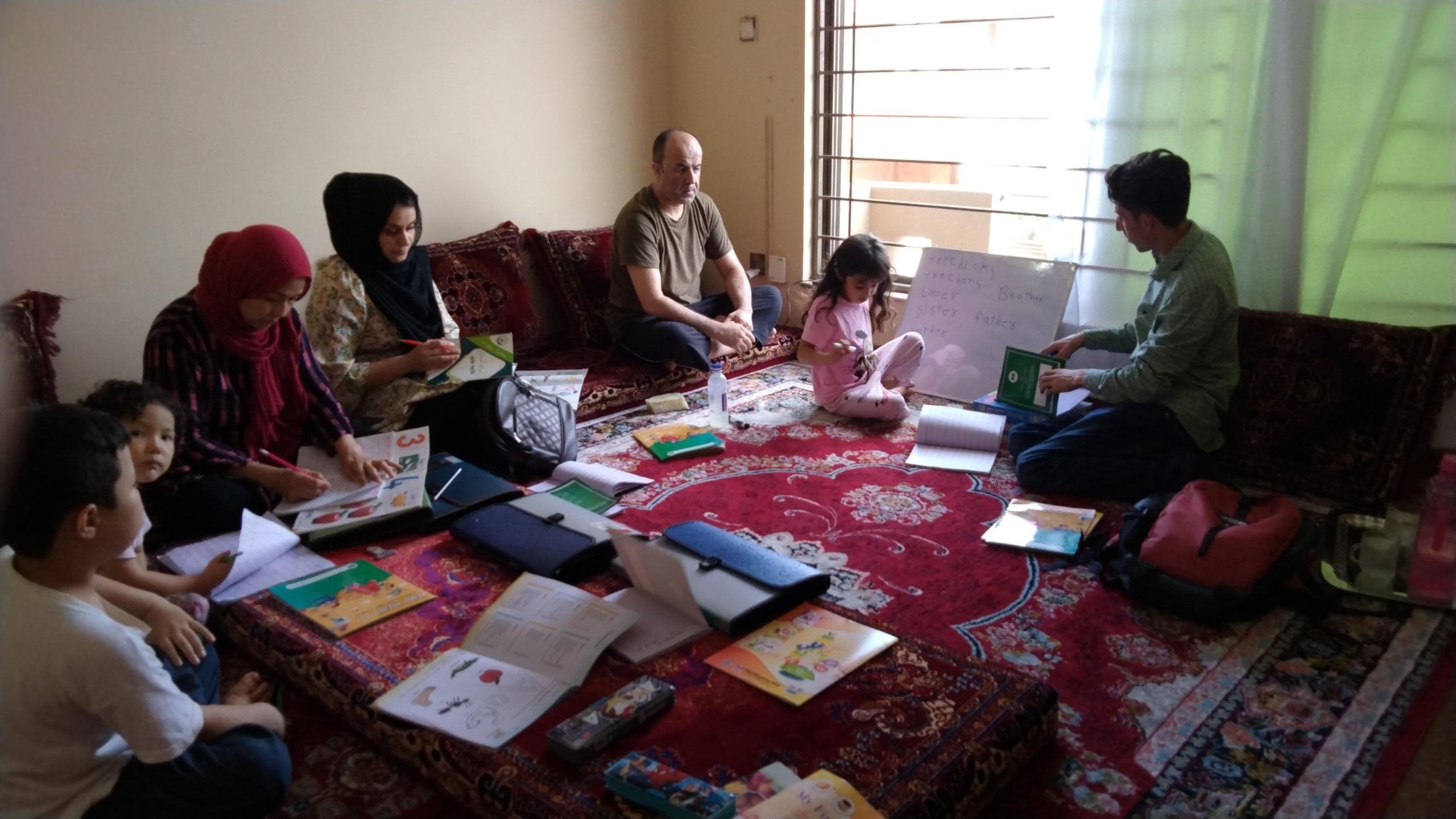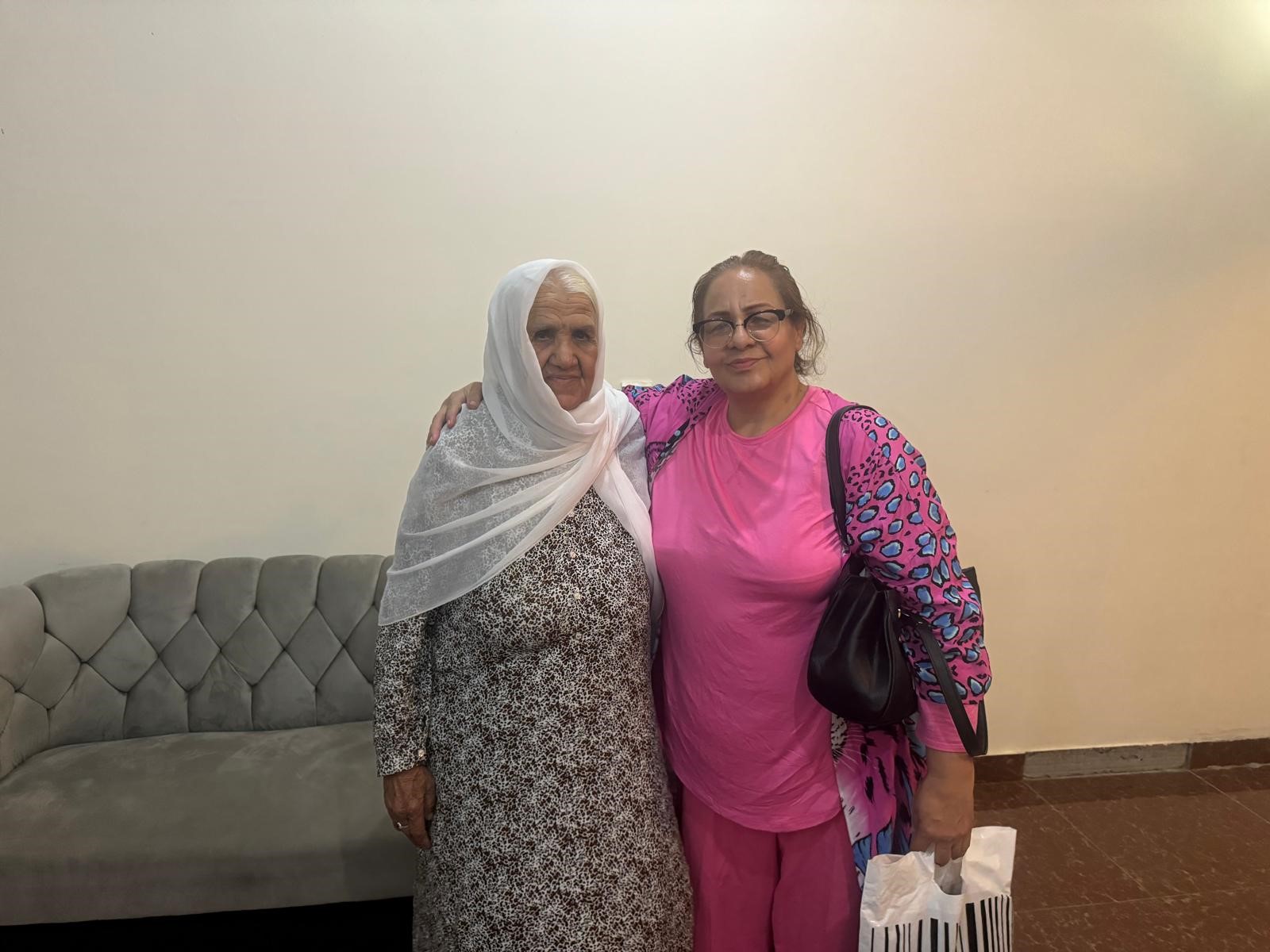
Members of Maryam's family in an English language class.
Three years ago, the United States withdrew from Afghanistan, and the Taliban took over. Following that transition, people who worked with U.S. institutions faced threats to their lives and freedoms. This included many former AFSC staff who worked with our Afghanistan program in the early 2000s and their families.
In 2021, AFSC pledged to help former staff and their families evacuate from Afghanistan. We initially helped 18 people leave the country. In the years since, we kept up our support for the dozens more we had promised to help.
Today, we are happy to report that we successfully evacuated 65 of our former colleagues and their family members this summer. They are now safe in Pakistan, where they will live as we assist them in applying for asylum in the U.S.
Throughout this process, AFSC helped them navigate daunting obstacles. Kerri Kennedy, AFSC associate general secretary for International Programs, and consultant Nasrin Rafiq assisted them in obtaining passports and other documentation, advocating with the State Department on their behalf, and coordinating evacuation routes.
Among the former staff we helped to evacuate was Maryam Amini. Maryam, 75, worked as a custodian for AFSC for six years in Kabul. She and her family are from Panjsher, a province in the north of Afghanistan considered the center of anti-Taliban resistance. Because of their background, her family faced constant threats and harassment from the Taliban.
Now safely in Pakistan, Maryam and the other evacuees are receiving comprehensive support, including housing, food, medical care, educational opportunities, and assistance with U.S. asylum applications.
Here Maryam shares her story of survival, hope, and new beginnings.

Maryam (left) with AFSC consultant Nasrin Rafiq.
On life under Taliban rule
It was very dangerous. I had to send my son to one of the safe provinces in the north to save his life. His wife and children went to live with his father-in-law. I remained in Kabul with my one daughter who is not married.
The Taliban would come to our house all the time to search for my son. Every time, my body would shake with fear. We had to move from house to house with my daughter because it was not safe for us at home. But they kept chasing us. I cannot count how many times I moved in three years—over 100 times.
Under the Taliban, there is no life for a woman in Afghanistan. You are not human. You cannot go out alone without a male member of the family. You cannot work or go to school. You are not part of society. Everything is closed off to us.
Our family lost everything. I couldn't work and bring food to my family—sometimes there was no food. My biggest worry was for my son. In the province, he worked for a shop repairing cars. He would send whatever money he could to me and his sisters. But there was no place for him to sleep. Overnight, he slept in the workshop, even in the winter cold.
It was hard when the first evacuation didn't happen [immediately after the U.S. withdrawal from Afghanistan]. We started to become very depressed. But working with Kerri and Nasrin gave me hope. It was a long process, very difficult. But they kept calling us. As an international organization, they were doing all that they could to save our lives.
On leaving Afghanistan
When I heard the good news from Kerri and Nasrin that there was an opportunity for me to leave the country, I was so happy. I cried and cried because of happiness.
I immediately called my son in the middle of the night and told him to come to Kabul because we had to leave Afghanistan. Hopefully, our lives will be saved.
My son, his wife, my two grandchildren, and I traveled to Pakistan from Kabul by plane. It was my first time on a plane.
The moment I arrived in Islamabad, people were there to welcome us. It was so wonderful. Cold water and juices were waiting for us in the car. One of the good memories I have is the moment we arrived in the house. It was furnished with beautiful items, and the table was full of food. Our refrigerator was full of beverages and all kinds of fruits and food.
On their new lives in Pakistan
In Afghanistan, we didn't have food, we didn't have security, we didn’t have freedom. Now, we have all of that. I feel alive again. I feel like a woman again. We can walk outside, and no one is there to question us for not wearing a headscarf or walking alone.
Everybody is learning English, from my grandchildren to me. Our days are very busy. In the daytime, we are learning and cooking for the family. We have a beautiful garden nearby. In the afternoon, around 5 p.m., I take the kids there and we go walking for two or three hours.
My hope is that my family will always be this secure. I want them to continue their education and have a good life. I also wish for my family to get asylum to go to the U.S. That is my final wish for my family.
I'm going to keep thinking that in the future we will have a good life, even better than today.